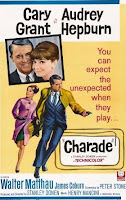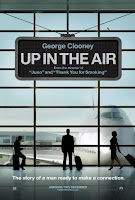 . It retains some of that theater intimacy through it's limited set, long shots and small cast of characters. 90% of the movie takes place in the apartments of Don (Edward Albert) and Jill (Goldie Hawn). Don is a blind man trying to have a life of his own away from his oppressive mother (Eileen Heckart) and Jill is his hippie actress neighbor.
. It retains some of that theater intimacy through it's limited set, long shots and small cast of characters. 90% of the movie takes place in the apartments of Don (Edward Albert) and Jill (Goldie Hawn). Don is a blind man trying to have a life of his own away from his oppressive mother (Eileen Heckart) and Jill is his hippie actress neighbor.I know. Goldie Hawn as a hippie. Suprise! Right? Well she plays the free-spirited life-lover well. There's no doubt about that. What bothered me more so was that this set up feels an awful lot like Cactus Flower which came out in 1969. Oddly enough the play Butterflies Are Free opened on Broadway in 1969 too. Cactus Flower had Hawn as a free-spirit in yet another hodgepodge apartment whose life revolved around her relationships with men. And in both her neighbor is a more suitable match for her than the man she's with outside the apartment building. The stories aren't exactly the same and Cactus Flower is more of a comedy, but the Goldie Hawn character and theme are major elements in both and it was enough to distract me throughout this movie.
The bright spot that really brought me back from that distraction was the entrance of Eileen Heckart as Don's mother. Watching a character so thoroughly fleshed out come in swinging is captivating. She's more than that too, but if I talk about her any further I'll spoil things. Let's just say her Oscar win for the role is not unexpected.
The movie has it's share of corniness too. For one the opening credits don't fit with the seriousness of the film. It opens like a TV show... title... all the credits over a song and street scenes... You almost expect characters to appear in freeze frame.
The movie has it's share of corniness too. For one the opening credits don't fit with the seriousness of the film. It opens like a TV show... title... all the credits over a song and street scenes... You almost expect characters to appear in freeze frame.
In the end it's an endearing enough movie.
Rating: 3.5/5
Recommended for: anyone whose mother has encroached a little too much in their life... also Goldie-Hawn-as-a-hippie fans























